

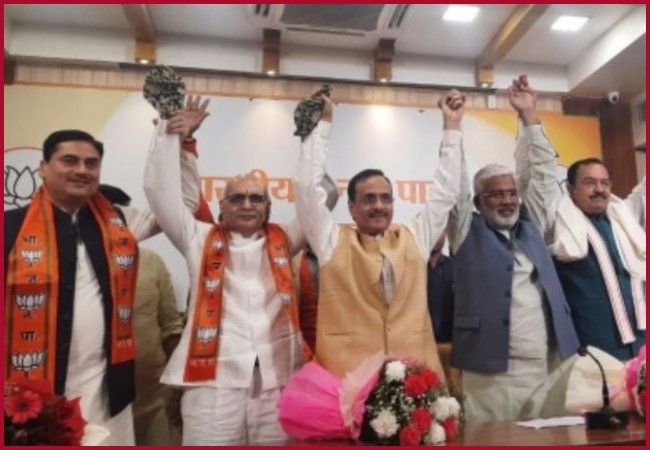
Ahead of the 2024 Lok Sabha Elections, Samajwadi Party has been facing major setbacks with several prominent leaders leaving the party to join rivals BJP. The latest addition to this trend is former minister and Bhumihar leader Narad Rai, who is set to join the BJP during a rally with Amit Shah in Ballia on 29th. Sources reveal that Rai's decision came after he felt ignored by SP leader Akhilesh Yadav during a recent meeting, following which he was convinced by BJP leaders Rajya Sabha MP Surendra Nagar and Rajya Sabha MP Neeraj Shekhar to join their party. This move could potentially give BJP a strong advantage in the two Bhumihar-dominated assembly constituencies in Ballia.
Samajwadi Party Faces Leadership Drain Amidst 2024 Lok Sabha Elections
Ahead of the 2024 Lok Sabha Elections, the Samajwadi Party (SP) has been witnessing a steady exodus of prominent leaders, raising concerns about the party's strength and electoral prospects.
Recent Developments
The most recent high-profile departure is Narad Rai, a former minister and Bhumihar leader from Ballia. Rai's resignation follows a meeting with SP leader Akhilesh Yadav, where he reportedly felt ignored. He is expected to join the Bharatiya Janata Party (BJP) during a rally with Amit Shah on March 29th.
Rai's defection is particularly significant as he hails from the Bhumihar caste, which has a significant presence in Ballia and other parts of Uttar Pradesh. Sources claim that BJP leaders Surendra Nagar and Neeraj Shekhar played a key role in persuading Rai to switch parties.
Trend of Leadership Departures
Rai's departure is not an isolated incident. In recent months, several other prominent SP leaders have left to join the BJP. This includes:
BJP's Advantages
The defections from the SP have given the BJP a significant advantage in the upcoming elections. The Bhumihar caste is a key vote bank in Ballia, and Rai's joining the BJP could strengthen the party's position in the two Bhumihar-dominated assembly constituencies in the district.
SP's Challenges
The leadership departures have weakened the SP and created challenges for Akhilesh Yadav. The party will need to address the concerns of its remaining leaders and find ways to attract new talent if it wants to remain competitive in the 2024 elections.
Top 5 FAQs and Answers
Q1. Why are SP leaders leaving the party? A1. Leaders have cited reasons such as feeling ignored, lack of opportunities, and ideological differences.
Q2. Which leaders have left the SP recently? A2. Swami Prasad Maurya, Dharam Singh Saini, Brij Bhushan Singh, and Narad Rai
Q3. What impact will this have on the SP in the 2024 elections? A3. The defections have weakened the SP and created challenges for Akhilesh Yadav.
Q4. Why is Narad Rai's departure significant? A4. Rai is a former minister and Bhumihar leader from Ballia, a district with a large Bhumihar population.
Q5. What is the BJP's advantage from these defections? A5. The BJP has gained support in key vote banks, such as the Bhumihar caste in Ballia, which could boost their electoral prospects.
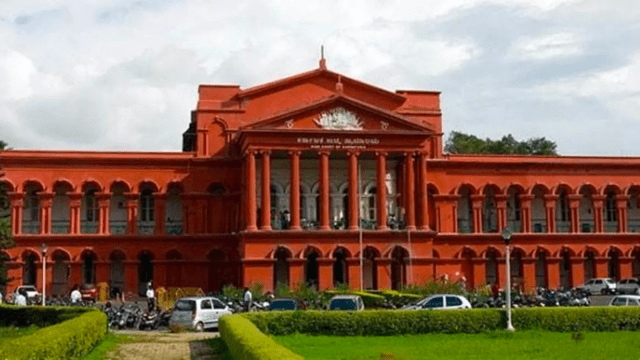
The Karnataka High Court has denied interim relief to social media giant X Corp in its petition challenging the government's new content-blocking mechanism. X Corp argued that the mechanism, set up through the Sahyog portal, does not comply with the safeguards mandated by Section 69A of the Information Technology Act. The Court has posted the matter for final hearing in April and has urged both parties to comply with Indian law.
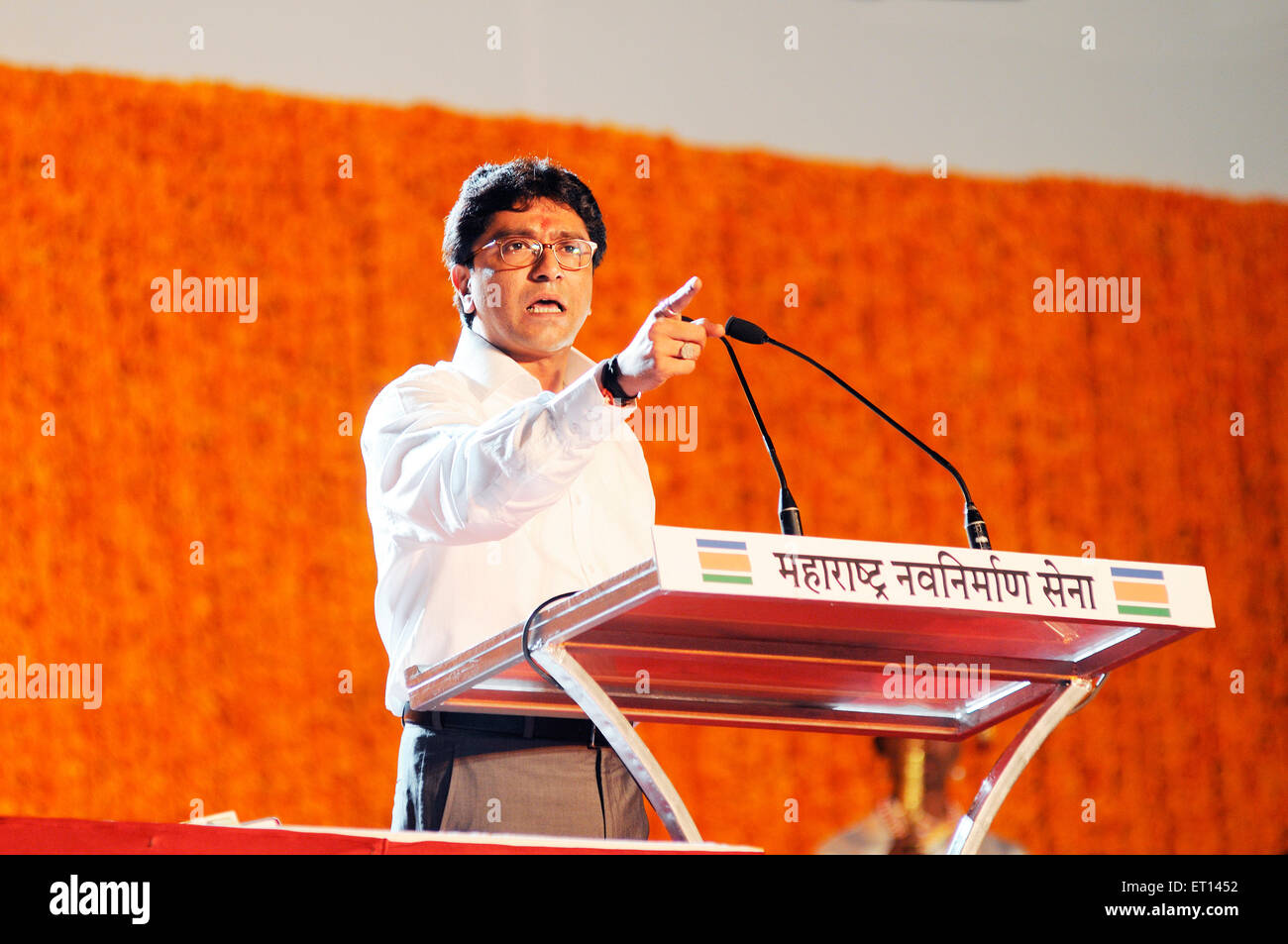
Amidst a series of incidents involving MNS activists resorting to violence against non-Marathi speakers, party chief Raj Thackeray has declared a revival of the party's "Mi Marathi" campaign. The ruling Mahayuti and opposition MVA parties have remained cautious in their reactions, with Chief Minister Devendra Fadnavis stating that demanding Marathi in Maharashtra is not wrong but violence will not be tolerated. While the BJP is reportedly backing the MNS for the upcoming BMC polls, former NCP minister believes it is a ploy to weaken the Shiv Sena-led alliance. The MNS, which has been struggling in the state elections, has found an opportunity to regain political relevance under Thackeray's leadership.
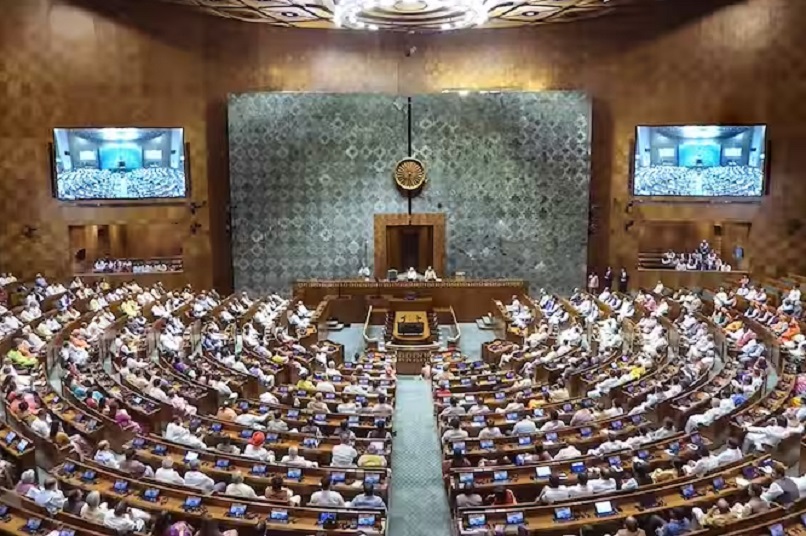
The Waqf Amendment Bill 2025 was passed by Parliament after a 13-hour long debate in the Rajya Sabha. The government hailed it as a "historic reform" for the benefit of the minority community, while the opposition criticized it as "anti-Muslim" and "unconstitutional". The revised bill, which aims to enhance the management and registration process of waqf properties, was approved by both Houses of Parliament and awaits presidential assent to become law. The Union Minority Affairs Minister noted that the Joint Parliamentary Committee's consultation process for this bill was the largest in India's democratic history, receiving over 97 lakh petitions and opinions from various stakeholders.
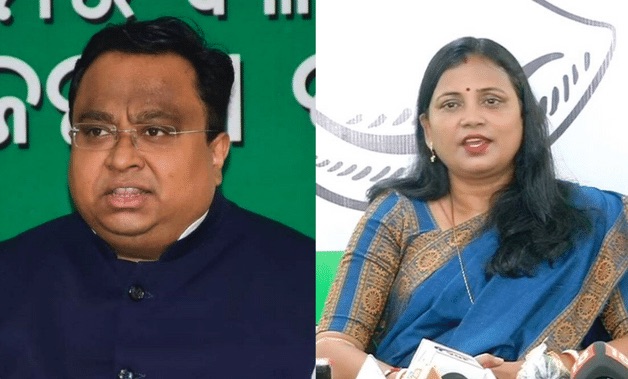
In a surprising turn of events, the ruling Biju Janata Dal (BJD) allowed its seven Rajya Sabha MPs to vote their conscience instead of following the party whip, resulting in the passage of the controversial Waqf (Amendment) Bill in the Upper House. The final tally of 128 in favour and 95 against exposes divisions within the Opposition, with some parties raising concerns about the bill's potential impact on minority communities. BJD's decision to allow a free vote was driven by the party's sensitivity towards various sections of the minority community.

After Rajya Sabha passed the Waqf Amendment Bill with 128 votes in favour and 95 opposing it, JDU Minority Secretary Shah Nawaz Malik resigned from the party and other posts in protest against the party's stand on the bill. He stated that the party's support for the bill was a betrayal of Indian Muslims and went against their belief in the party's secular ideology. The bill, which aims to enhance the administration and management of waqf properties, is facing widespread opposition from the minority community, with the Grand Mufti of Jammu and Kashmir, Mufti Nasir-ul-Islam, calling it anti-Muslim and stating that the community is planning to challenge it in the Supreme Court.

Tamil Nadu Chief Minister MK Stalin has declared that his political party, the DMK, will challenge the recently passed Waqf Bill in the Supreme Court. The CM condemned the passing of the amendment at 2 am, alleging pressure from a few allies, despite opposition from most parties in India. He also highlighted that the state Assembly has already passed a resolution opposing the amendment, and that a case will be filed in the Supreme Court on behalf of the DMK. The Waqf Bill seeks to improve the administration and management of waqf properties in India, but its passing has been met with criticism and opposition.
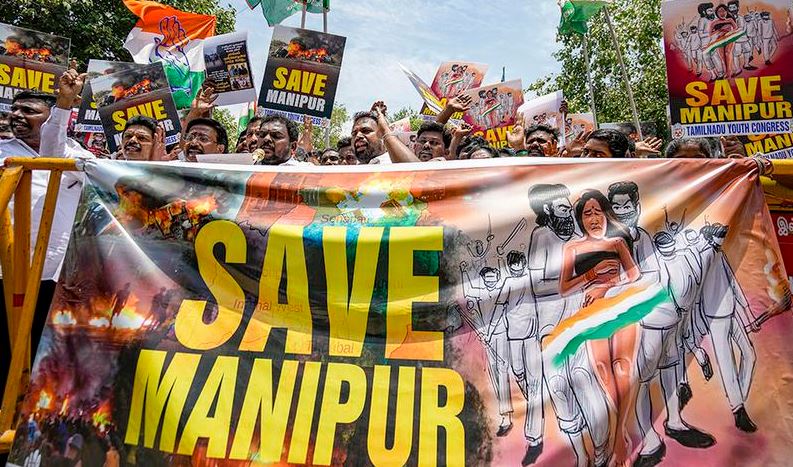
The Lok Sabha was in session until the early hours of the morning, debating and passing important bills. However, amidst the proceedings, the government initiated a short discussion on the proclamation of President's Rule in Manipur at 2 AM which lasted only 41 minutes. The Opposition was surprised and protested, but the Speaker allowed the discussion to continue. Congress MP Shashi Tharoor, in his speech, highlighted the failures of the government in maintaining law and order in Manipur and questioned the timing and necessity of the President's Rule.
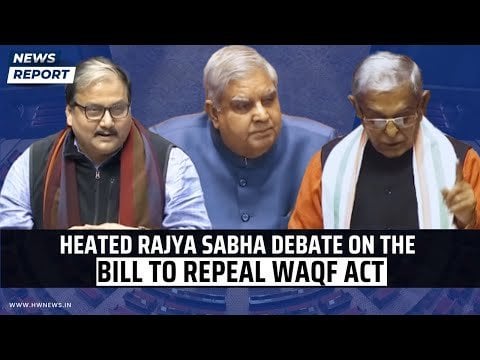
The Waqf Amendment Bill, which was earlier passed by the Lok Sabha, sparked a heated debate in the Rajya Sabha today. While BJP MP JP Nadda defended PM Modi's welfare for all principle, Shiv Sena MP Sanjay attacked the BJP for ignoring the interests of Muslims. Union Minister Giriraj Singh also joined in, accusing the Congress of crossing the limits of appeasement by giving away 123 properties to Waqf in Lutyens' Delhi overnight in 2013. The debate highlights the deep division and polarizing views over the proposed amendments to the Waqf Act in Uttar Pradesh, the state with the highest number of Waqf properties in the country.

In a digitized effort, Chief Minister Devendra Fadnavis transferred a grant of ₹25 crore to 560 gaushalas across the state under the Desi Cow Conservation Scheme. This first phase of the scheme will benefit over 56,000 indigenous cows for their upkeep. Fadnavis emphasized the importance of preserving indigenous cows for rural development and praised the initiative taken by the Maharashtra Goseva Commission. With lower milk productivity, these cow shelters play a vital role in providing necessary care for non-milking and unproductive cows, making the scheme a major relief for them.

Samajwadi Party chief Akhilesh Yadav criticized the BJP for taking 10 months to select a national president, while Amit Shah countered by pointing out dynastic practices among opposition parties. Reports suggest that the BJP will announce its new national president by the third week of April to replace JP Nadda. Nadda's tenure was extended until June 2024, but the new president will still be chosen after a process involving the party's 12-13 crore members.